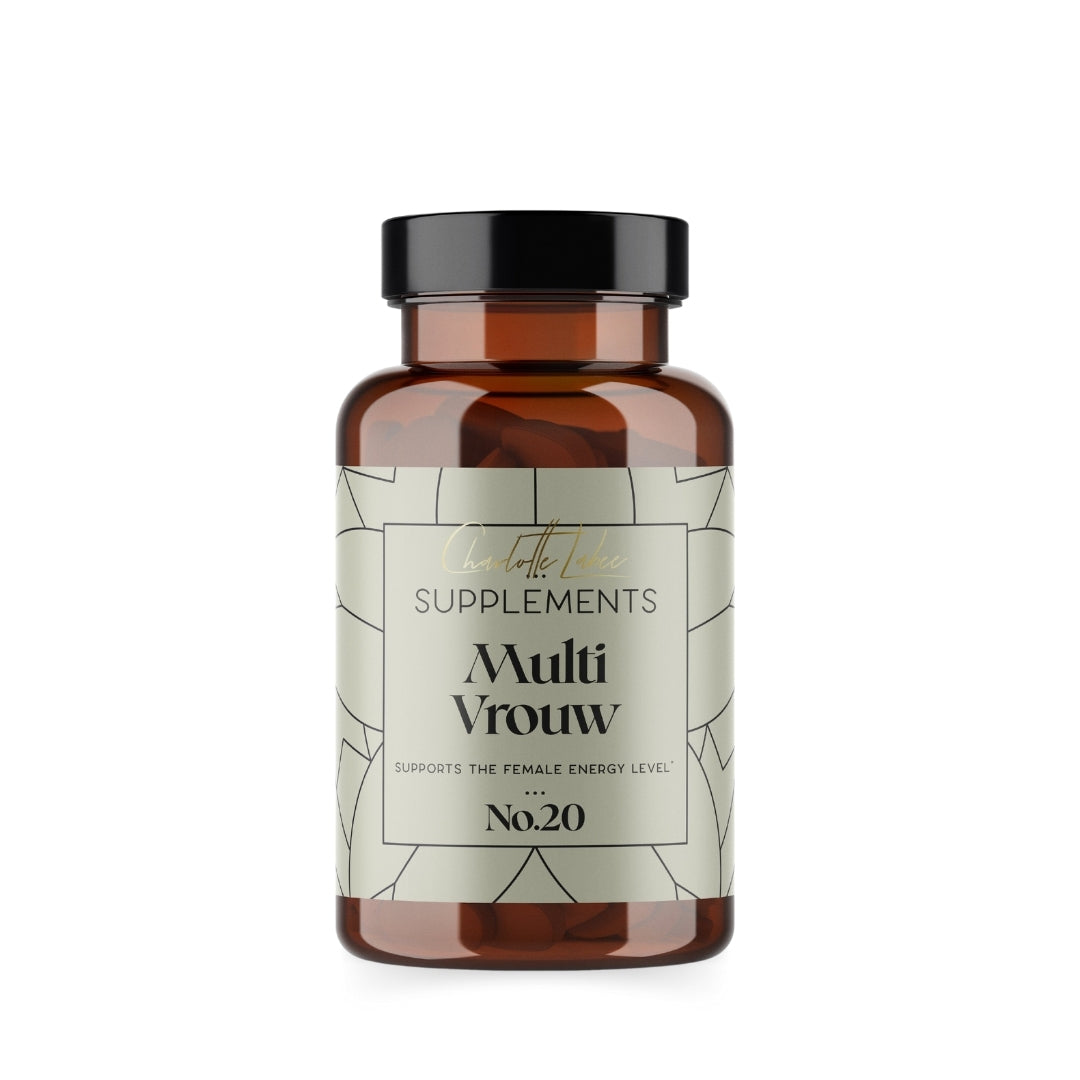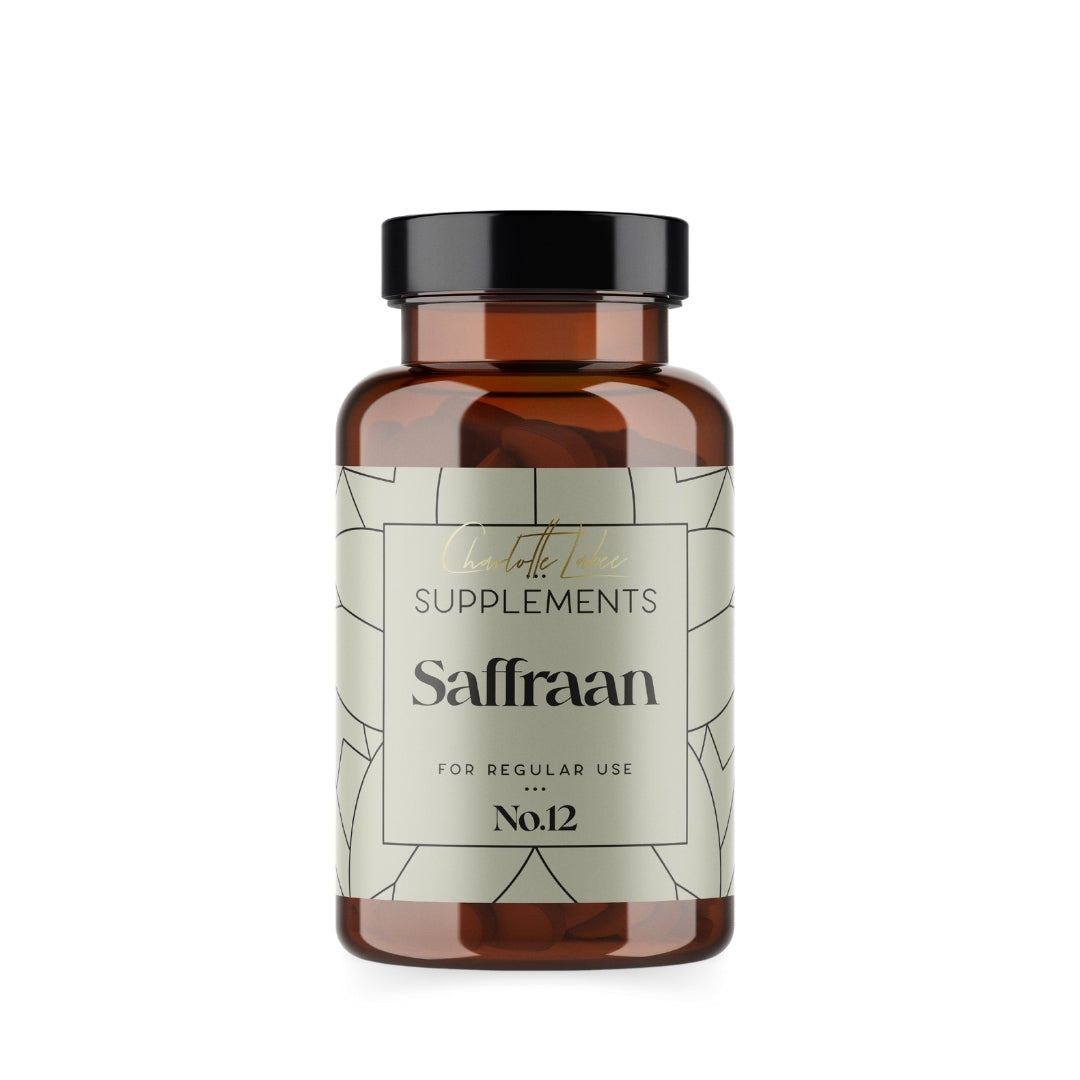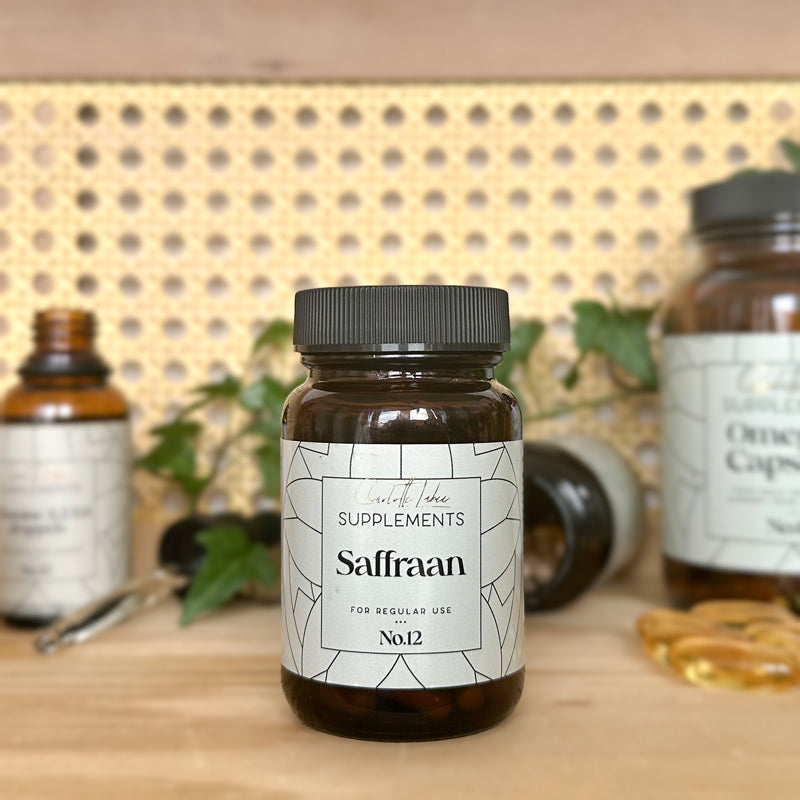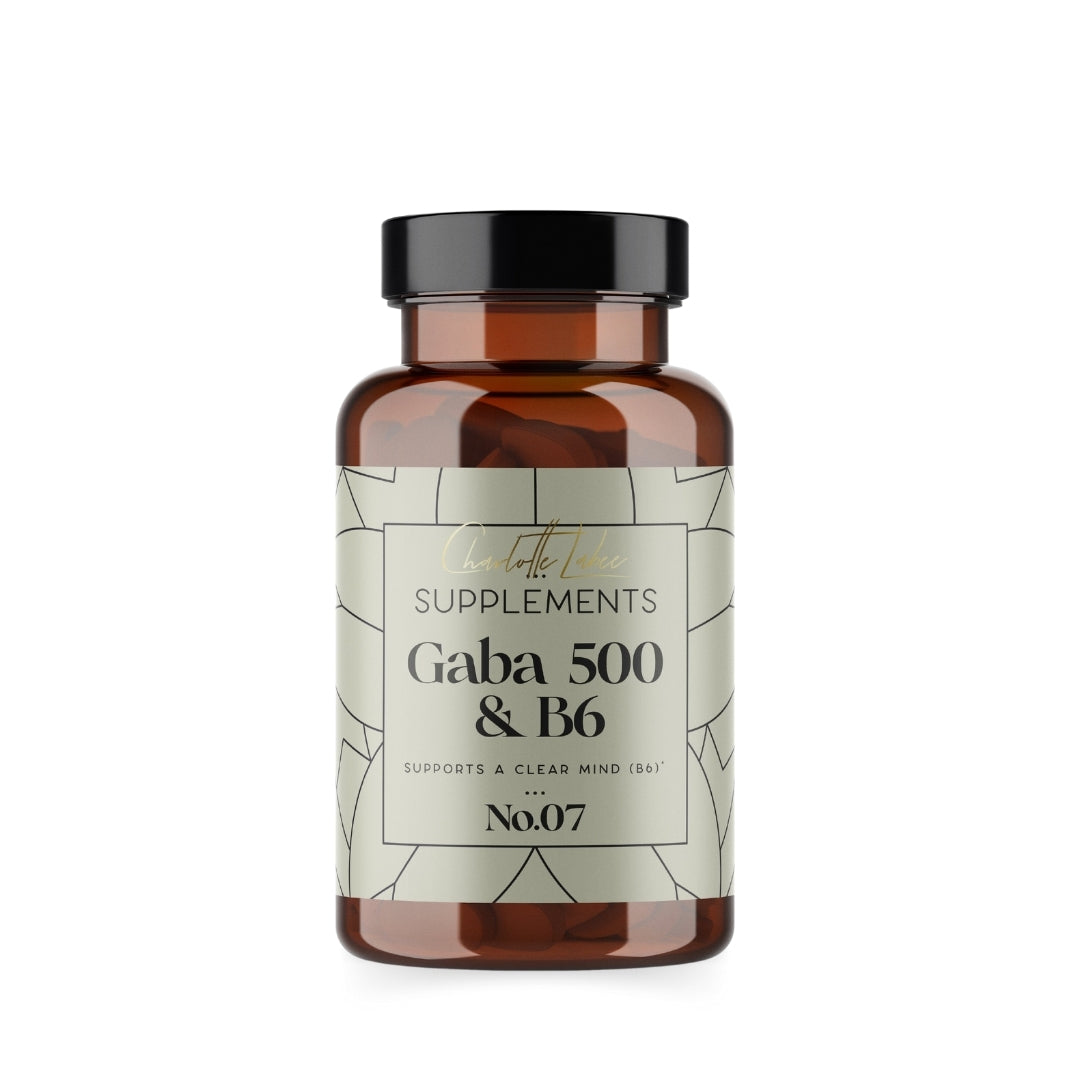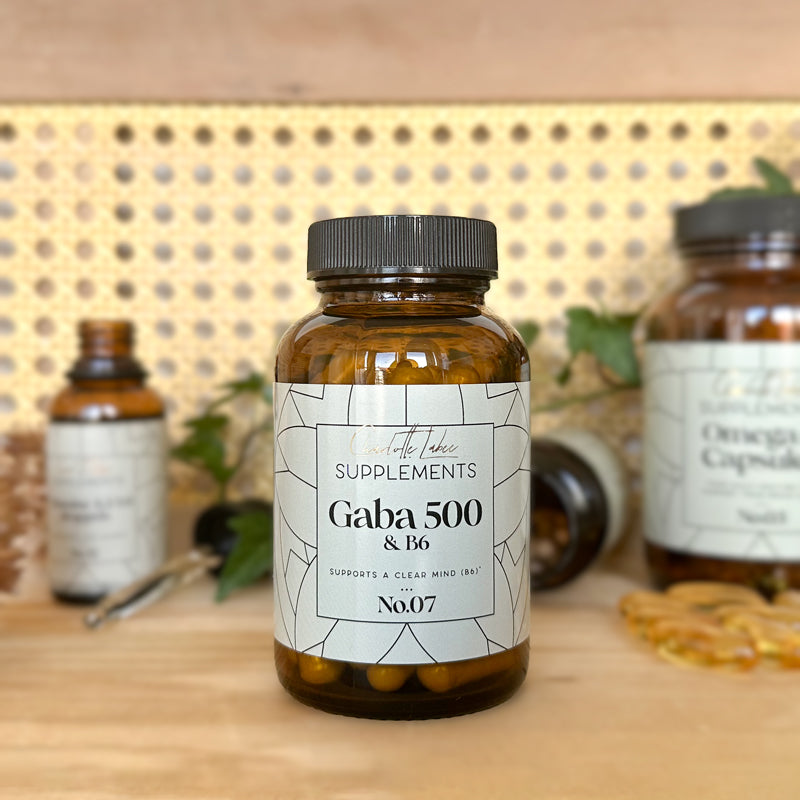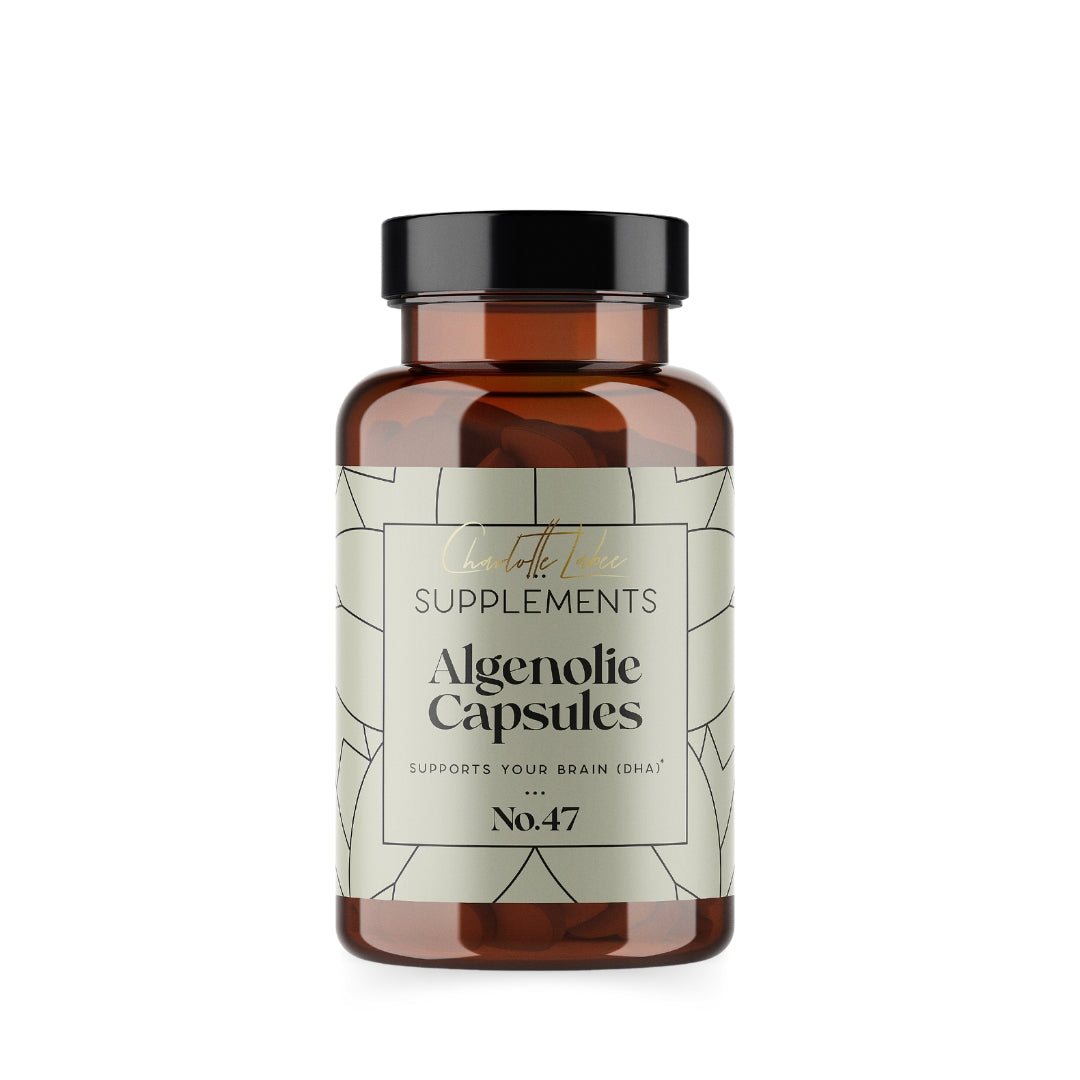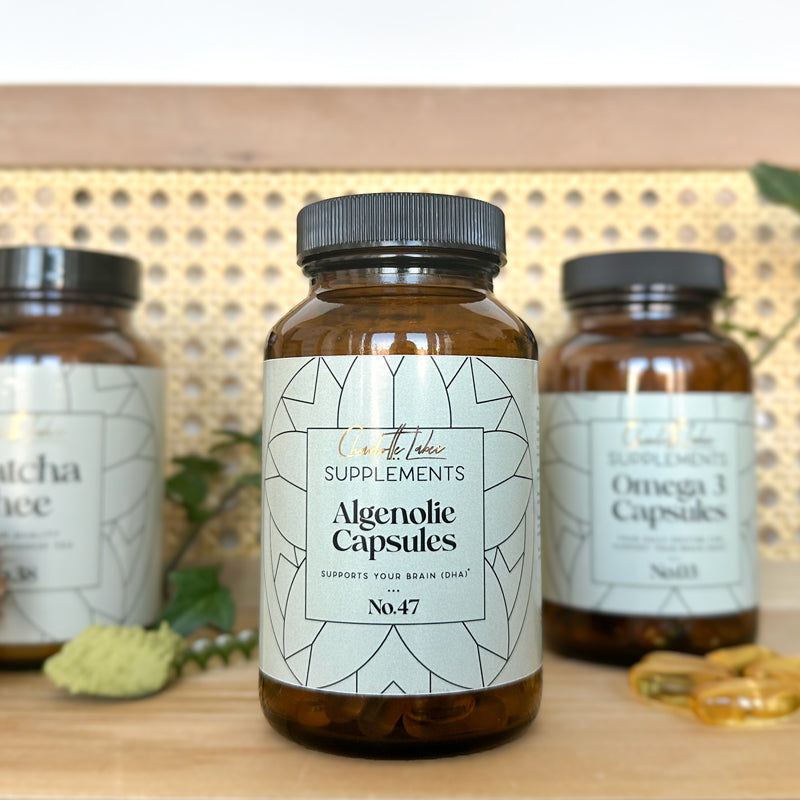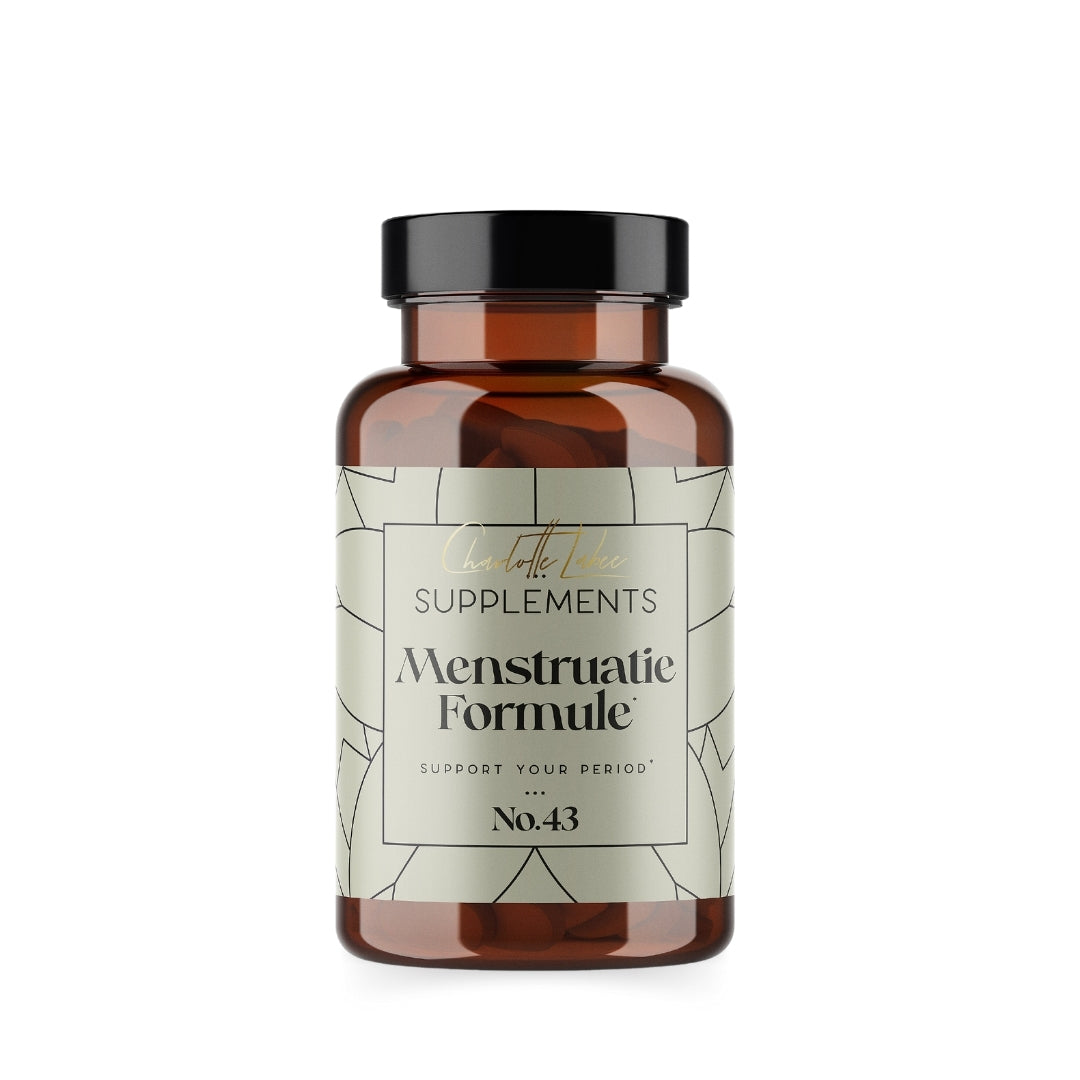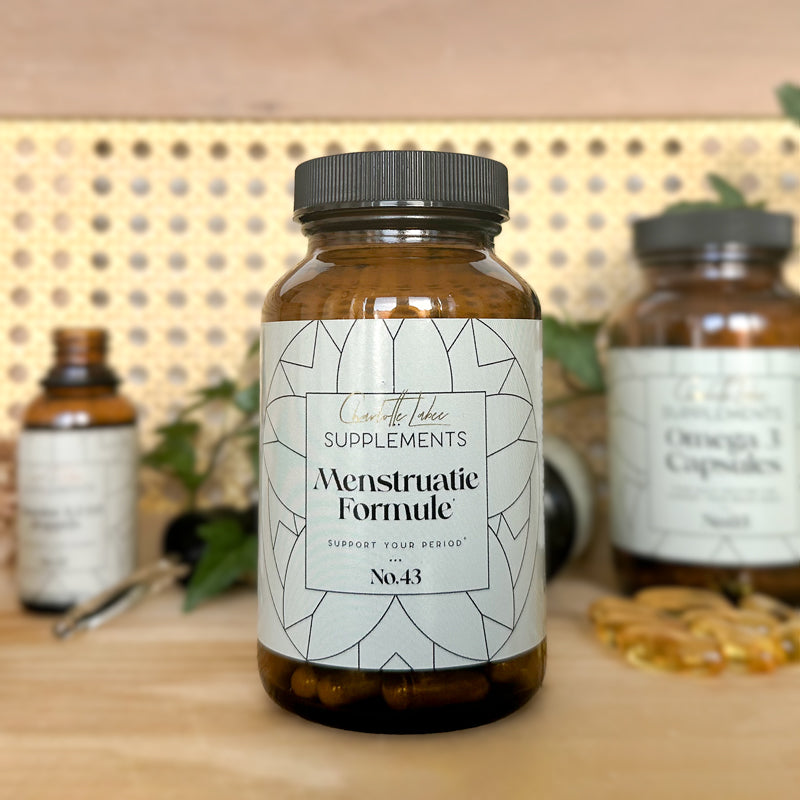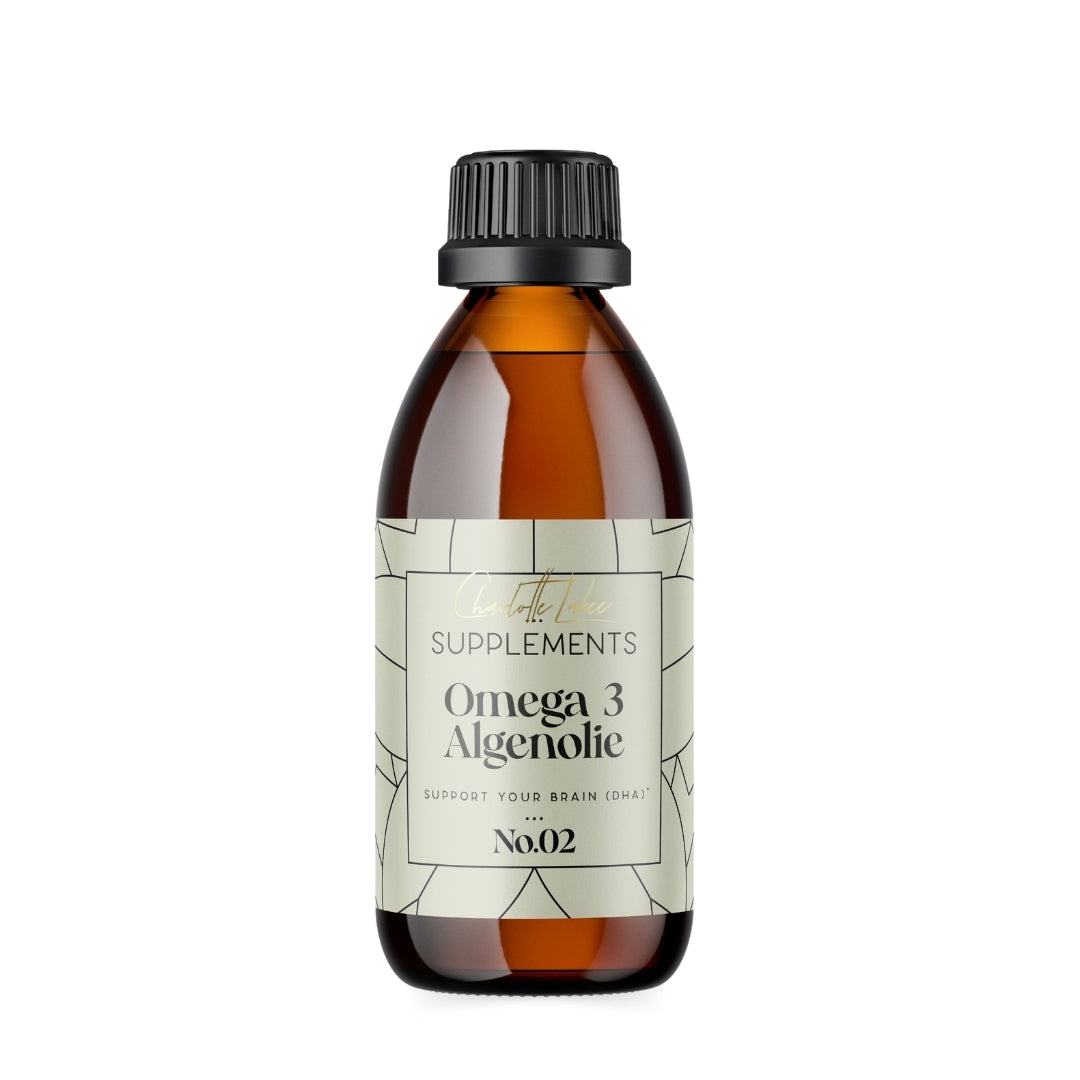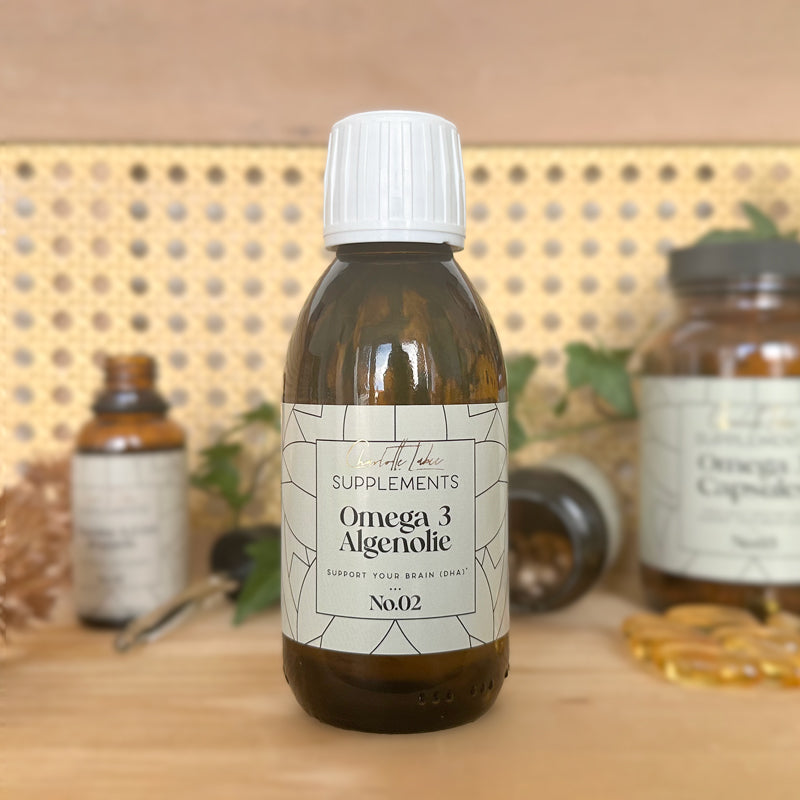Hormonen
Heb jij last van hormonale klachten en disbalans en ben je benieuwd waar deze vandaan komt én hoe je je hormonen weer in balans brengt? Voedingsstoffen spelen hierin een belangrijke rol. We vertellen je graag welke voedingsstoffen dit zijn en hoe jij je hormonen kunt ondersteunen. En welke rol spelen supplementen voor de hormonen eigenlijk?

Hormonen Supplementen van Charlotte Labee Supplements
Hormonen invloed op de gezondheid
Hormonen zijn chemische boodschappers die doork klieren worden geproduceerd en in de bloedbaan worden afgegeven. Ze reguleren verschillende lichaamsfuncties door signalen naar organen en weefsels te sturen, die hier weer op reageren. Zo beïnvloeden hormonen een tal van processen, waaronder groei en ontwikkeling, stofwisseling, stemming, voortplanting, en de werking van het immuunsysteem. Ze spelen een cruciale rol in het handhaven van de homeostase: de balans in ons lichaam.
Als de hormonen niet naar behoren werken, en er dus disbalans ontstaat, dan kun je last krijgen van zeer uiteenlopende klachten. Denk aan vermoeidheid, stemmingswisselingen, gewichtsschommelingen, mentale klachten, huidproblemen, darmklachten en meer. Voeding speelt een belangrijke rol in hoe goed de hormoonbalans is. Gezonde, diverse voeding en de juiste voedingsstoffen ondersteunen de balans, terwijl voeding als suiker, vet en alcohol de hormoonbalans verstoren.
Hormonen en je uiterlijk
Hormonale disbalans heeft invloed op zoveel lichamelijke processen, waaronder het uiterlijk. Hoe beter de hormonen in balans, hoe meer je van buiten straalt. Is er disbalans? Dan zie je dat ook terug. Dit komt omdat hormonen de volgende invloeden hebben op je uiterlijk:
Hormonen en de huid
Het vrouwelijke geslachtshormoon oestrogeen helpt de huid gehydrateerd en elastisch te houden. Een daling van oestrogeen, zoals tijdens de menopauze of door disbalans, leidt tot een droge en dunne huid. Het mannelijke geslachtshormoon testosteron beïnvloedt de talgproductie. Hoge niveaus van testosteron kunnen leiden tot een verhoogde talgproductie, wat acne kan veroorzaken. Daarnaast speelt ook het stresshormoon cortisol een rol in de
huidgezondheid: een disbalans in de stresshormoon maakt de huid dunner en minder elastisch, wat kan leiden tot vroegtijdige veroudering.
Hormonen en haar en nagels
Androgenen zijn een groep hormonen, waaronder testosteron en dihydrotestosteron (DHT), die een sleutelrol speelt in de haargroei. Disbalans kan leiden tot kaalheid of dun haar bij zowel mannen als vrouwen. Ook disbalans in schildklierhormonen (hypo- of hyperthyreoïdie) kan leiden tot haaruitval en veranderingen in de haardikte en textuur, en ook tot broze en zwakke nagels. De vrouwelijke hormonen oestrogeen en progesteron beïnvloeden de nagelgroei ook.
Gewicht en lichaamsvorm
Insuline is een hormoon dat de bloedsuikerspiegel reguleert en een rol speelt in de opslag van vet. Insulineresistentie kan leiden tot gewichtstoename, vooral rond de buikstreek. De hormonen leptine en ghreline reguleren honger en verzadiging. Leptine vermindert de eetlust, terwijl ghreline de eetlust verhoogt. Onevenwichtigheden kunnen leiden tot overeten en gewichtstoename. Oestrogeen en progesteron beïnvloeden de vetverdeling in het
lichaam. Hoge oestrogeenniveaus kunnen leiden tot vetopslag in de heupen en dijen, terwijl veranderingen in progesteron het lichaamsgewicht en de vorm kunnen beïnvloeden, vooral tijdens de menstruatiecyclus, zwangerschap en menopauze.
Hormonen in balans
Hormonale schommelingen zijn normaal. We hebben allemaal een natuurlijke hormooncyclus die beïnvloed hoe we ons in iedere fase van de cyclus
voelen. Als de hormonen echter (constant) uit balans zijn, worden deze schommelingen groter en verergeren de bijkomende klachten. Merk jij dat je last hebt van terugkerende klachten waarvan je lastig een oorzaak aan kunt wijzen? Wellicht zijn het jouw hormonen. Van huidproblemen tot gewichtsschommelingen, van stemmingswisselingen tot darmklachten. Hoe beter je hormonen in balans zijn, hoe lekkerder jij in je vel zit.
Hormonen advies
Als je last hebt van hormonale disbalans, dan zijn dit de dingen die je het beste kunt doen om de balans op holistische wijze te herstellen:
- Stressmanagement:
Stress zorgt ervoor dat je stresshormonen pieken, wat op de lange termijn tot allerlei klachten leidt. Je stress managen en ontspanningstechnieken toepassen helpt om hier de balans te houden. Maak tijd voor wandelingen, ademhalingsoefeningen, meditatie en ontspanning. - Slaap optimaliseren:
Houd een regelmatig slaapritme aan en streef ernaar om aan jouw ideale slaapuren te voldoen, of dit nu zeven of negen uur is. - Regelmatige lichaamsbeweging:
Ook beweging is essentieel voor het houden van balans in je hormonen. Probeer minimaal 30 minuten per dag fysiek actief te zijn op middelmatige intensiteit. Té intensieve beweging kan ook disbalans veroorzaken. Fietsen, zwemmen, hardlopen, wandelen of krachttraining zijn allemaal goede vormen van beweging. - Vermijd toxinen:
Vermijd zoveel mogelijk hormoonverstorende chemicaliën in schoonheids- en verzorgingsproducten, huishoudelijke producten, voeding, kleding en plastic verpakkingen. - Overweeg supplementen:
Supplementen bevatten voedingsstoffen die verschillende vlakken van je hormonale gezondheid kunnen ondersteunen als aanvulling op een gezond dieet. Zo draagt vitamine B6 bij aan het reguleren van hormonale activiteit, en helpt zink tot totstandbrenging van een normaal testosterongehalte in het bloed.
Supplementen kopen bij Charlotte Labee
Merk jij dat je last hebt van terugkerende klachten waarvan je lastig een oorzaak aan kunt wijzen? Wellicht zijn het jouw hormonen. Bij Charlotte Labee hebben we gespecialiseerde therapeuten die jou persoonlijk kunnen adviseren over hormonen, leefstijl en supplementen, en hierbij ook eventuele risico’s als medicijngebruik, ziekte, zwangerschap of andere factoren meenemen. Je kunt bij ons een gratis* adviesgesprek aanvragen om zo advies op maat te krijgen, maar je kunt ook een 1-op-1 traject aangaan met een van onze therapeuten om jouw hormonale disbalans op ieder vlak aan te pakken, waarbij ook naar jouw dieet, leefstijl, slaapritme en andere belangrijke elementen wordt gekeken.
Doe de gratis persoonlijke adviestest om erachter te komen welke supplementen het beste bij jouw behoeften passen.
*Eenmalig €15.95, die je terugkrijgt bij aanschaf van supplementen.
FAQ
Wat is hormonale disbalans?
Hormonale disbalans ontstaat wanneer er van bepaalde hormonen te veel of te weinig wordt aangemaakt in het lichaam, waardoor bepaalde processen en lichaamsfuncties anders verlopen dan gewenst.
Zijn supplementen veilig?
De veiligheid van hormoon supplementen hangt af van de soort, dosering en individuele omstandigheden, zoals bijvoorbeeld medicatie. Het is belangrijk om professioneel advies in te winnen zodat je het juiste supplement met de juiste dosering gebruikt.
Wat zijn klachten van hormonale disbalans?
Klachten van hormonale disbalans zijn onder andere vermoeidheid, gewichtstoename of -verlies, stemmingswisselingen, slaapstoornissen, acne, haaruitval, onregelmatige menstruatie, libidoverlies, hoofdpijn en spijsverteringsprobleme.
Gerelateerde artikelen

Stoppen met de pil? Zo help je je lichaam bij het ontpillen
Door Chantal Spierenburg
Voor veel vrouwen is het een bekend verhaal: je begint op jonge leeftijd met de pil. Misschien omdat je last had van acne, onregelmatige of pijnlijke menstruaties, of simpelweg omdat...
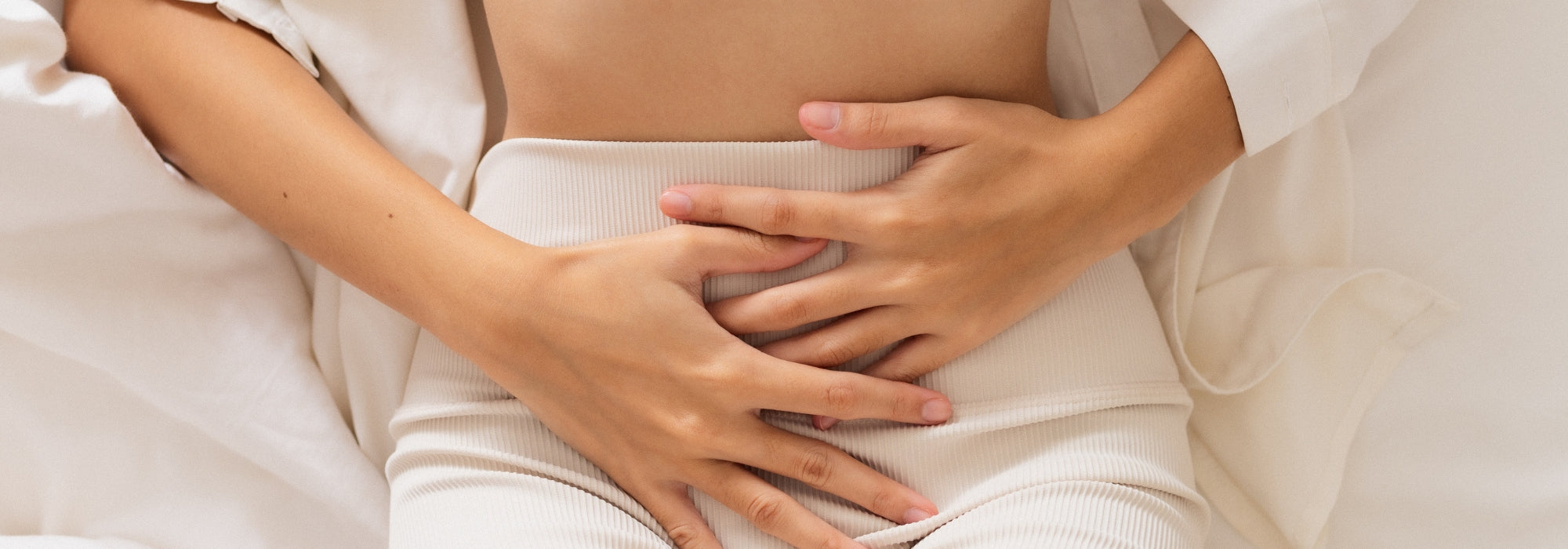
Endometriose: wat is het, en waarom hebben zoveel vrouwen er last van?
Door Charlotte Labee
Endometriose is een complexe en vaak slopende aandoening waar naar schatting 1 op de 10 vrouwen wereldwijd mee te maken krijgt. Toch is er nog veel te weinig bekend over...

Wat gebeurt er hormonaal in de postpartumperiode?
Door Charlotte Labee
De postpartumperiode is een bijzondere, maar ook uitdagende fase waarin je lichaam zich aanpast aan een totaal nieuwe situatie. Naast het fysieke herstel vinden er ingrijpende hormonale veranderingen plaats. De...

Vrouwelijke vs. mannelijke hormonen
Door Charlotte Labee
Hormonen spelen een onmisbare rol in ons leven. Ze beïnvloeden niet alleen hoe we ons voelen, maar ook hoe we functioneren en met elkaar omgaan. Bij mannen en vrouwen werken...
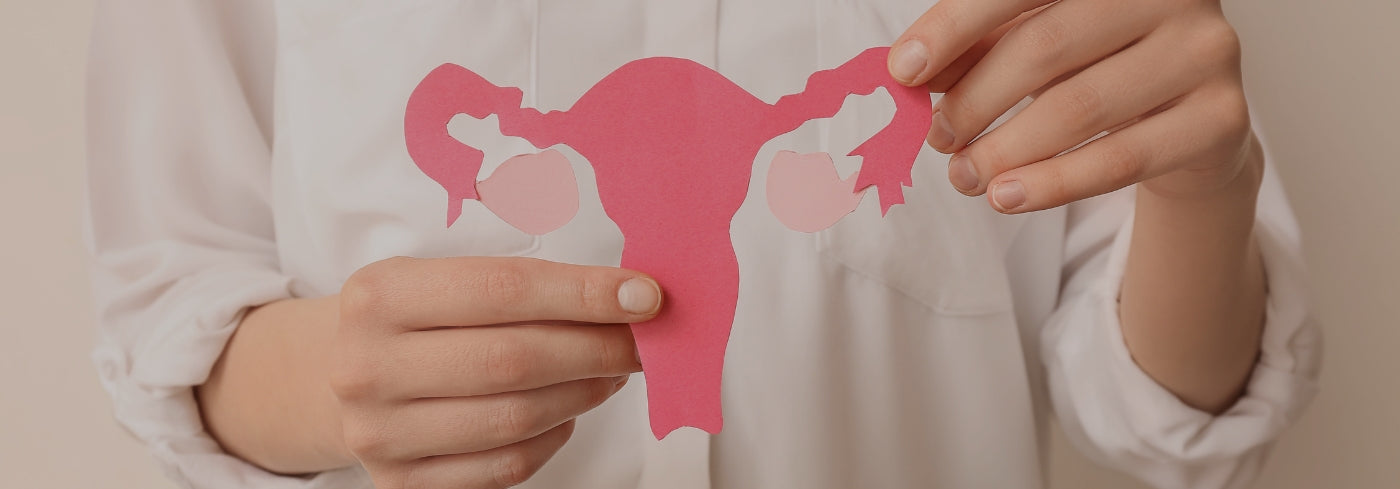
Hormonale klachten en verklaringen
Door Charlotte Labee
Hormonen spelen een cruciale rol in het functioneren van ons lichaam. Ze sturen processen aan zoals onze stemming, energieniveau, slaap, en vruchtbaarheid. Wanneer er een disbalans in hormonen ontstaat, kunnen...
Vraag nu jouw gratis supplementenadvies aan!
Krijg een gratis cadeau Bij elke bestelling boven de 150 euro











